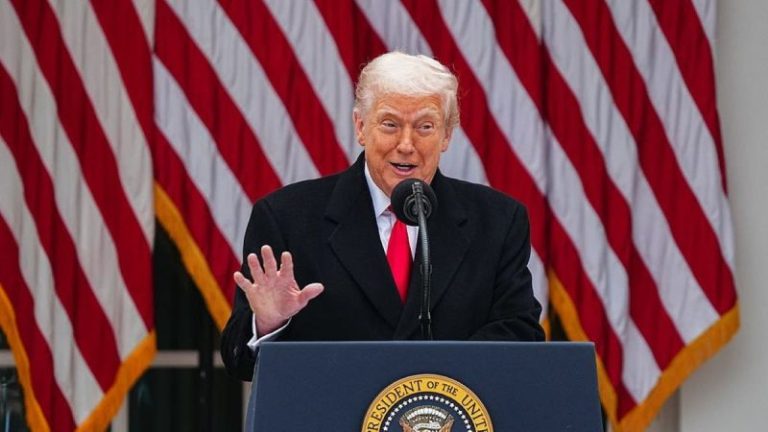For years, rare earths have been discussed mostly in times of crisis — a supply scare here, a geopolitical flare there. This year, the strategic minerals are again taking center stage as China reasserts control over the sector.
The latest round of rare earths policy shifts has put new attention on how producers outside China are positioning themselves. For MP Materials (NYSE:MP), 2025 has been less about responding to market turbulence and more about testing what a viable, strategically resilient rare earths supply chain could look like beyond China’s dominance.
“We’ve been talking about these issues for many, many years,” CFO Ryan Corbett said during a fireside chat at the Benchmark Week conference in Marina del Rey, California.
“But the export controls in April put everything in stark relief.” The result, he told the audience, has been a level of public and government attention he has “never seen before.”
And the attention is coming at a pivotal moment for the US-based company.
This year marked five years since MP went public, an anniversary the team celebrated by ringing the bell at the New York Stock Exchange, as well as the culmination of several major announcements aimed at strengthening rare earths production, processing and magnet making outside of China.
The long road from mine to magnet
Corbett is the first to admit that the broader conversation around rare earths often oversimplifies the challenge. Headlines usually focus on mining or magnets, but the real bottlenecks, he stressed, live in the middle.
“You don’t magically take NdPr oxide and turn it into a magnet in a magnet factory,” he said. The process includes converting oxide to metal, metal to alloy flake, flake to powder, then pressing, sintering, slicing and grinding. Each step requires specific infrastructure, technical expertise and — perhaps most critically — experience.
Corbett sees this gap clearly in the wake of announcements from companies claiming to have plans for large-scale magnet facilities. “We see all these announcements — ‘We’re going to do a 10,000 ton magnet plant.’ They’ve never made metal before,” he said. “Good luck. It takes time. It takes investment. It takes R&D.”
When MP listed publicly five years ago, it was still producing only rare earths concentrate. The company told investors it would revisit magnet-making discussions around 2025.
Geopolitical urgency pushed MP to accelerate that timeline, leading to the company’s fully integrated US facility in Fort Worth, where metal, alloy and finished magnets are now all made domestically.
“It is critical that we master all of them at scale,” Corbett said. Without that know-how, any new facility will be vulnerable to single-point failures, the same dynamic that has left the industry heavily reliant on China.
Where the real rare earths bottleneck lies
When asked what truly slows down western rare earths supply chain development, Corbett didn’t point to mining. Instead, he pointed to refining, a stage China has dominated for decades.
“China doesn’t have 99 percent of the upstream reserves,” he noted. “They have the refining capacity and capability.”
That distinction is shaping MP’s next major step: a new world-scale refining facility in Saudi Arabia, built in partnership with Maaden and backed by the US Department of Defense (DoD).
The project is designed to process feedstocks from around the world, including materials that are too small, too short-lived or too geographically constrained to justify their own refineries.
Crucially, the new plant is being built with capital from the US government, not MP. “We didn’t want to be putting more capital at risk overseas while we’re fulfilling promises in the US,” Corbett said.
He added that the government wanted the facility built, and MP brought the technical and operational capability; the equity investment from the DoD bridged the gap.
The structure is unusual. According to Corbett, this is the first time since World War II that the DoD has taken an equity stake in a private enterprise. But he argued that the situation demands it.
“From a supply chain and national security perspective, we are that far behind.”
A price floor that reshapes incentives
The DoD’s involvement isn’t limited to the Saudi facility.
This past summer, the department also struck a landmark agreement with MP, establishing a price floor for NdPr oxide, the high-value rare earths ingredient inside permanent magnets.
The deal is “absolutely transformational,” Corbett said.
Rare earths prices have historically been highly vulnerable to sudden moves from China, a fact that has long posed an existential risk to western refiners. “What good is it to invest billions of dollars if the second you turn your refinery on, prices go from US$170 to US$45?” questioned Corbett.
The agreement is structured to avoid distorting the downstream market. MP still sells oxide at market prices; the government covers the difference only when prices fall below the negotiated threshold.
“It doesn’t impact the pricing of our magnets at all,” Corbett explained. “That was really important to us.”
If prices soar — something Corbett says he would welcome — MP would pay the government.
“I hope five years from now I’m being accosted by investors for taking this deal, because prices are so high we’re cutting checks back to the government,” he said.
Apple, recycling and the next phase
Also over the summer, MP announced another milestone — a major partnership with Apple (NASDAQ:AAPL) to source 100 percent recycled rare earth materials for the tech giant’s devices.
Recycling is often framed as a threat to miners. Corbett argues the opposite.
“It’s still a game of scale and expertise in refining,” he said. “It’s just a different feedstock.”
In many ways, recycled magnets are easier to process than raw ore. The challenge is achieving sufficient volume and consistency, something MP believes Mountain Pass is uniquely positioned to enable.
“Integration matters,” Corbett said. By blending recycled materials with the mine’s large, steady feedstock, MP can smooth out the variability inherent in end-of-life magnets.
A new playbook for national resources?
Taken together, MP’s 2025 announcements point toward a broader shift in how western governments approach critical minerals supply chains moving forward. Heavy government involvement through frameworks like equity stakes, price floors and international partnerships may represent a new template.
“This administration is approaching it with the mentality that it’s going to take real dollars to make this happen,” Corbett said. And if its investments pay off, he argued, they could help rebuild an industrial base the US hasn’t had in decades as MP positions itself to offer the full value chain, from mining and refining to producing finished magnets.
“Once the flywheel gets going,” Corbett said, “You’re onto something.”
Securities Disclosure: I, Georgia Williams, hold no direct investment interest in any company mentioned in this article.









